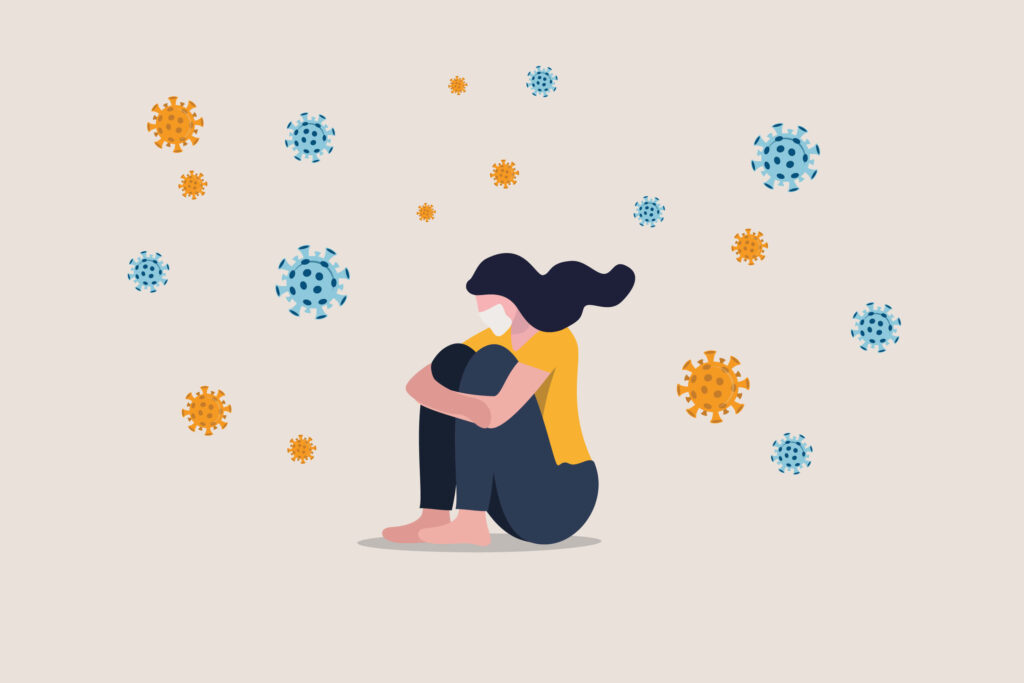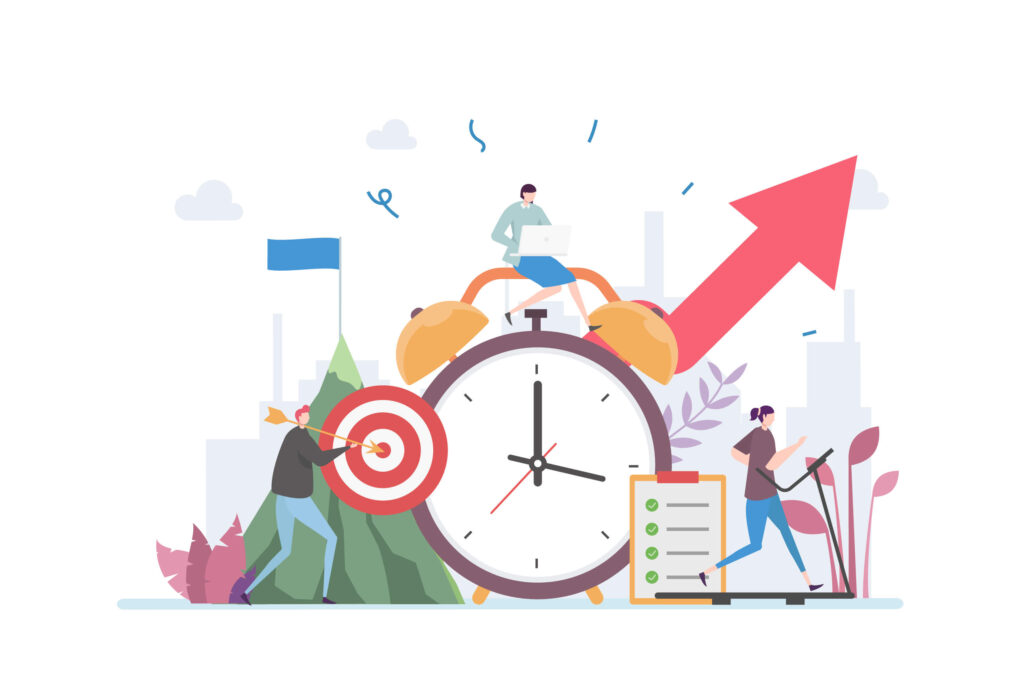Mental health Awareness Week 2020: Looking after your mental health when working at home

This week is Mental Health Awareness Week, which runs from the 18th to the 24th of May. This annual campaign was set up by the Mental Health Foundation to raise awareness for mental health issues and encourage anyone suffering from mental health issues to speak about their struggles.
Kindness matters
The theme for mental health awareness week this year is kindness. This was decided in response to the current coronavirus pandemic, which is undoubtedly having a huge impact on many people’s mental health. Now, more than ever it is important for us to be kind to ourselves and others. One small act of kindness can make a huge difference to someone suffering with their mental health, and research has shown that people who are kind and compassionate see clear benefits to their wellbeing and happiness. Kindness can also help reduce stress and improve our emotional wellbeing.

Mark Rowland, chief executive of the Mental Health Foundation, said: “We want to use Mental Health Awareness Week to celebrate the thousands of acts of kindness that are so important to our mental health, and we want to start a discussion on the kind of society we want to shape as we emerge from this pandemic.”
Kindness could be built into business decisions in a way that supports everyone’s mental health and reduces discrimination and inequality. This Mental Health Awareness Week we encourage you to be kind to your friends, family, neighbours, employees, co-workers, and yourself.
Mental health at work

Staying mentally healthy at work can be a struggle. Especially now where many people have been forced to work from home for the first time. Working from home can bring about its own struggles and stressors which can negatively impact our mental health. Many may feel stressed due to the change and having to juggle work and home life in the same place. Some feel isolated and alone without the usual contact with their co-workers. Many of us will also be feeling anxious due to the current pandemic leading us to worry about our health, the health of our loved ones, our job security, and what the future holds.
It is not uncommon to have mental health problems at work. The Mental Health Foundation has revealed that “1 in 6.8 people are or have experienced mental health issues in the workplace.” Whether it is because of a large amount of work being given to you and the overwhelming feeling that follows this, or even it is because you do not feel secure in your job. Poor mental health in the workplace can be costly to employers as it leads to an increase in absenteeism and presenteeism. The Mental Health Foundation reported that “12.7% of all sick related absences in the UK are related to mental health conditions.” Last year the Health and Safety Executive found that a staggering 602,000 workers suffered from work-related stress, depression, or anxiety, and this led to 12.8 million lost working days.
It is incredibly important for employers to look after their employee’s mental health at work, whether they are still at work or working from home. There are a number of things both employers and employees can do to help improve their mental health during this difficult time. We have put together a list of simple tips that we can all implement into our daily lives to help positively effect our mental health.
Top tips for improving your mental health during this difficult time
Stop checking the news!
Try to limit your exposure to negative news stories which can cause you to feel anxious, stressed, or uneasy. With the current situation that the world is in, following the news on the pandemic constantly can negatively impact your mental health. If you cannot completely stop watching the news, maybe try to check it once in the morning and once at night so you are getting the overall coverage of the news in around about an hour instead of watching it all day.
Using apps like Offtime allows you to block the use of certain apps and websites during certain times of the day, or even just block them altogether. Any advice you read should come from reliable sources. Check the UK Government website or the NHS website for the most up-to-date advice when it comes to your physical health, travel and work
Get into a routine
During these challenging times, getting into a routine can help you to manage your mental health. Getting into a routine can help you to keep your mind focused and gives you some control over your life, which you may feel you are lacking at the moment. When working from home it can be tempting to stay in your pyjamas all day and laze around in bed, but this can impact the way you think and feel, and make you feel low or unmotivated. Try to get up at your usual time, get showered, dressed, have something to eat, and maybe even use the time you spend commuting to do some exercise. This will get you into the right mind frame to focus on work.

It is also important you stop working at a set time too, as when working from home the lines between work and home life can get blurred leaving you working all kinds of hours and late into the night, which is unhealthy.
Getting into a routine leaves you with personal time at the end of the day where you can sit down, relax, and talk to family and friends to get things off your mind, and de-stress after in time for bed. If you do not get into a routine you can become distracted and start to lose focus on your job. As an employer you should be encouraging your staff to set a healthy working from home routine so you can get the most out of your employees whilst also looking after their mental health.
Take a break
Taking a break from your work can be vital for your mental health and staying healthy. Taking a break can give you a chance to relieve stress and stops you from becoming overwhelmed by your workload. Studies have also shown that those who take regular breaks have increased productivity, so while your employees may think they’ll get more done by working through lunch, this isn’t always the case.

Sleep well
Sleep is vital to mental health as getting enough sleep can lift your mood and regulate the chemicals in your brain that transfer information. These chemicals are important to your mental health as they help to control your moods and emotions. Our bodies need sleep to recover from the day and so our brains can ‘recharge’ and a lack of sleep can make us feel physically unwell as well as stressed and anxious.

Getting too much sleep or playing catch up on your sleep, can also be bad for your mental health as it can make you to feel de-motivated, tired, anxious, and depressed. Getting into a good sleep routine is important for both your mental and physical health. Try to go to bed at the same time every night and wake up at the same time each day, and aim for around 8 hours sleep a night.
Eat well

Eating well isn’t just important for our bodies, but also for our minds. If you have certain mineral deficiencies, such as calcium, iron or vitamin C, you can start to feel low and get into a bad mood. Eating a balanced diet can be important as it makes sure you are getting all the vitamins and minerals needed. An unhealthy diet can lead to a variety of health problems which can negatively impact us both physically and mentally.
When feeling low, stressed, or anxious, many people comfort eat to make themselves feel better, consuming a lot of unhealthy foods which can lead to weight gain, which in turn can affect our mental health. Some may even do the complete opposite and not eat anything, which is just as unhealthy. Ensure you are eating a healthy balanced diet with three nutritious meals a day. Cooking good food can also be a good form of therapy, many people believe that cooking is a good way to relieve stress.
Be kind
Kindness is the theme of mental health awareness week this year and can have a positive effect on your own as well as others mental health. Being kind to colleagues, family, and friends is important as seeing people happy has a positive impact on yourself. The Mental Health Foundation found that two-thirds of people surveyed say that when people are kind to them, and also when they are kind to others, it has a positive impact on their mental health. Small acts of kindness can make a huge difference, so remember to be kind to others and yourself during this difficult time.